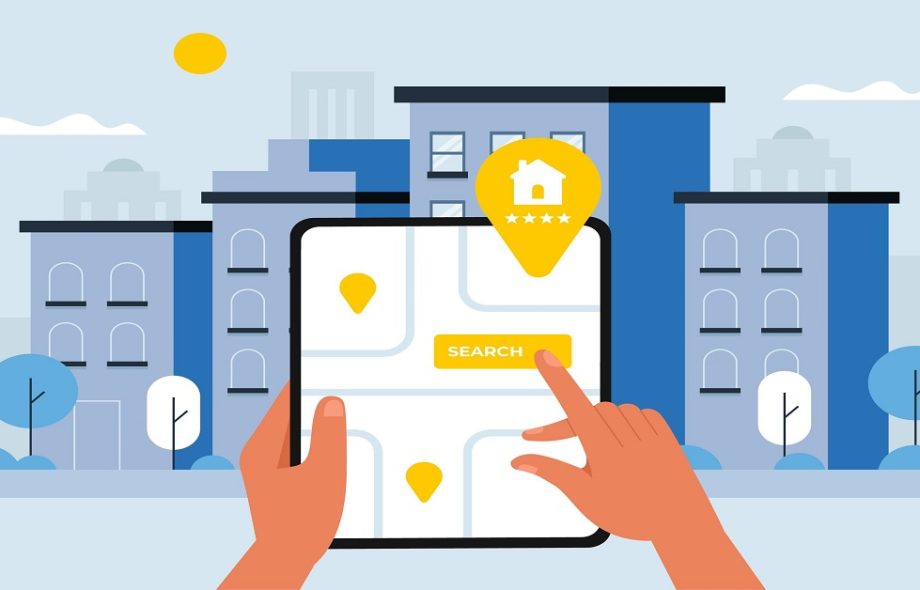In 2025, the real estate industry continues to evolve rapidly through digital innovation. Mobile apps have become essential tools for property buying, selling, and renting, offering users instant access to listings, virtual tours, and pricing insights. A professional Real Estate App Development Company plays a vital role in building feature-rich, user-friendly applications tailored to market demands. These apps enhance user engagement, improve lead conversion, and streamline operations for agents and brokers. With rising competition and increasing user expectations, partnering with an experienced Real Estate App Development Company ensures businesses stay ahead by delivering seamless, smart, and scalable real estate solutions.
1. Smarter Property Recommendations
Gone are the days when users had to scroll endlessly to find a suitable home. With AI-driven algorithms, real estate apps can now deliver highly personalized property recommendations based on user behavior, preferences, location, and even browsing patterns.
Benefits:
• Saves time by narrowing down search results
• Enhances user satisfaction and engagement
• Improves lead conversion rates
AI constantly learns from user interactions, enabling apps to become more intuitive over time—delivering exactly what the user wants, often before they even know they need it.
________________________________________
2. AI-Powered Chatbots and Virtual Assistants
Customer service in real estate has been revolutionized with AI-powered chatbots. These virtual assistants can handle everything from answering queries and scheduling property visits to sending reminders and collecting feedback—24/7.
Key Features:
• Natural Language Processing (NLP) for human-like conversations
• Automated lead qualification
• Instant support without human intervention
For a Real Estate App Development Company, integrating a smart chatbot is now considered a baseline feature that boosts both user satisfaction and operational efficiency.
________________________________________
3. Predictive Analytics for Property Value Forecasting
AI can analyze large volumes of historical data to predict future property trends, price fluctuations, and neighborhood growth potential. This is particularly useful for investors and homebuyers looking for long-term value.
Applications:
• Forecasting property appreciation rates
• Identifying high-growth investment areas
• Setting realistic property pricing based on market trends
Such data-driven insights are crucial for users making significant financial decisions, and they add a layer of trust and professionalism to the app experience.
________________________________________
4. Computer Vision for Image Recognition and Property Tagging
With AI-powered computer vision, real estate apps can automatically tag and categorize property images—identifying rooms, amenities, and features like pools, kitchens, and balconies.
Benefits:
• Enhanced property search filters based on visual data
• Faster image uploads and property listings
• Better property descriptions and categorization
This technology also powers features like “search by image,” where users can upload an image of a home style they like, and the app shows similar properties.
________________________________________
5. Virtual Tours and AI-Enhanced 3D Experiences
AI is transforming virtual property tours by combining with augmented reality (AR) and 3D visualization technologies. Users can now “walk through” properties from their phones, get interactive highlights, and even visualize future renovations.
Key Innovations:
• AI-generated staging of rooms
• Interactive property comparisons
• Real-time commentary or narration
In 2025, this immersive experience has become a competitive advantage for real estate businesses and developers.
________________________________________
6. Voice Search and Smart Assistants Integration
With the growing popularity of smart assistants like Alexa, Siri, and Google Assistant, real estate apps are now integrating voice search capabilities. Users can search for homes using voice commands like, “Find 2BHK apartments in Dubai under $500,000.”
Advantages:
• Hands-free convenience
• Greater accessibility for elderly or disabled users
• Faster, more natural interactions
This feature is particularly effective in mobile-first markets and enhances the overall usability of real estate applications.
________________________________________
7. AI for Fraud Detection and Risk Analysis
Security is critical in real estate transactions. AI helps detect suspicious activities, fraudulent listings, or fake documents by analyzing user behavior patterns, metadata, and document authenticity.
Security Applications:
• Verifying property ownership and legal documents
• Detecting duplicate listings or scams
• Monitoring unusual activity in user accounts
This reduces the risk for both buyers and sellers and builds trust in the app’s ecosystem.
________________________________________
8. Dynamic Pricing and Negotiation Tools
AI can also facilitate smart pricing tools by analyzing market trends, competitor listings, and user demand. Some apps are now integrating AI-driven negotiation assistants that suggest counteroffers or optimal bidding strategies.
Key Outcomes:
• Transparent pricing for buyers
• Faster sales for sellers
• Intelligent deal-making support
This feature is especially beneficial for commercial real estate users or high-volume agents.
________________________________________
Final Thoughts
The integration of AI into real estate app development is not just improving features—it’s transforming the entire user journey. From the moment a user searches for a property to the final stages of negotiation and purchase, AI Technology ensures smarter, faster, and more personalized experiences.For any business looking to enter or upgrade in this space, working with a future-ready Real Estate App Development Company is essential. AI is the driving force of real estate innovation in 2025, and companies that embrace it now will lead the market tomorrow.
 :
https://in.pinterest.com/devtechnosys/_created/
:
https://in.pinterest.com/devtechnosys/_created/

